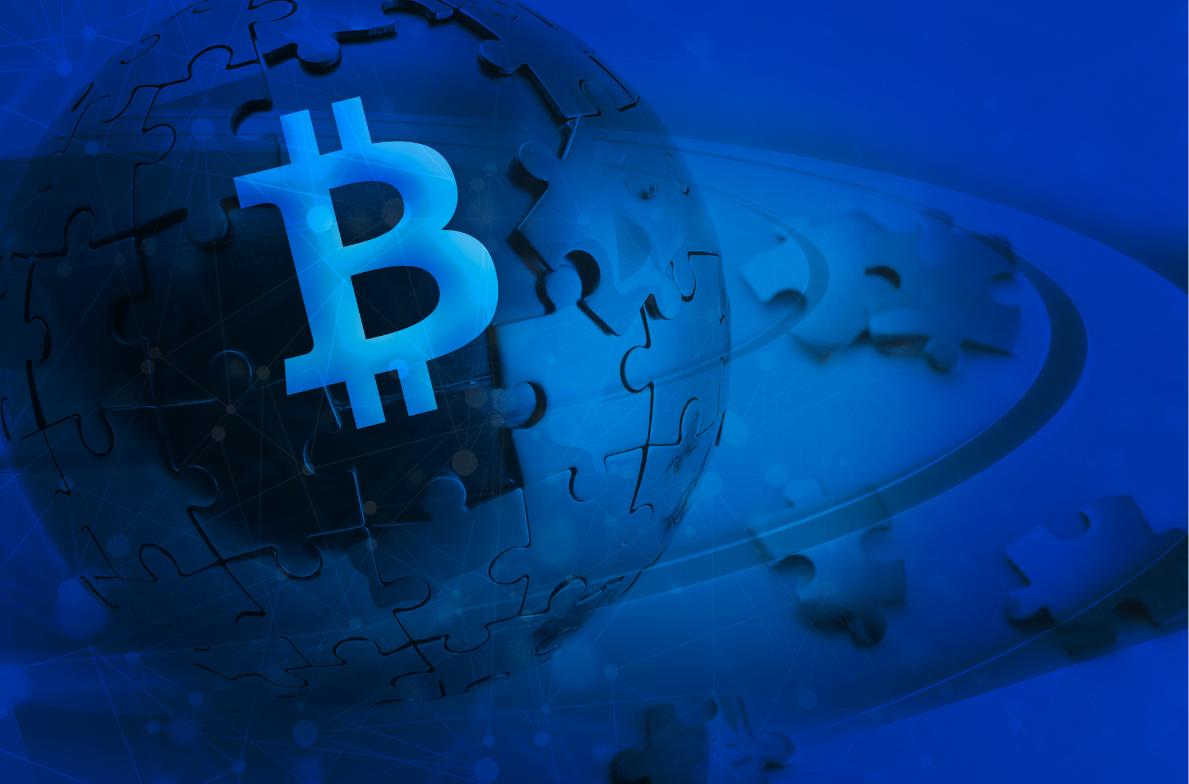 BACK
BACK
Will Your Money be Chained by the Block? - Blockchain, Bitcoin and their Impacts in the World of Finance
- September 08, 2023
This article requires an average reading time of 8min 40sec.
UPDATE August 2023: The below article was written in September 2019 when the price of Bitcoin was less than USD 10,000. 3 years later, it rose more than 600% to about USD 61,000 in October 2021 before dropping to about USD 26,000 now in August 2023.
Show Me the Money – the World before Bitcoin
Since the creation of the concept of money, the supply of it has been controlled by governments and central banks through the physical minting of it in coins and paper money, as well as through policies in the fiscal and monetary form to regulate the money supply flowing in the economy. The Merriam-Webster dictionary defines money as “something generally accepted as a medium of exchange, a measure of value, or a means of payment”. After the fall of the Bretton Woods system in 1970, the printing of a country’s currency no longer has to be tied to the gold they own. As such, “because fiat money is not linked to physical reserves, such as a national stockpile of gold or silver, it risks losing value due to inflation or even becoming worthless in the event of hyperinflation. If people lose faith in a nation’s currency, the money will no longer hold value.” Thus, the governments of the world has a very important task of regulating its money printing and supply so as not to cause wild fluctuations in its fiat currency value, or creating asset ‘bubbles’ when there are too much money flowing in the economy chasing after real estate properties for instance.
Intermediary clearing houses like banks are especially important for us to make payment transfers to a third party. Today, with the advent of the Internet and technology such as digital signatures, we are able to make money deposits and transfers electronically using our phones, iPads or laptop computers. Credit card companies and payment gateways such as PayPal has enabled us to make payment for goods and services digitally without having to dig into our pockets to use physical paper money or metal coins for payments. So essentially, money in our bank account has essentially become “no more than entries in a database that can only be changed under specific conditions. Money is all about a verified entry in some kind of database of accounts, balances and transactions"
To help move money within the country and around the world, banking institutions have been around for hundreds of years to help facilitate this process and they earn loads of fees in return. The banks are to act as the ‘trusted’ intermediaries to confirm our identities, how much money we really own, and to prevent double-spending if we had already used up our money deposited with them. The banks will vouch for the money we have with them before we can use it or move it to another bank who will then have confirm on their ledger correctly that we have shifted a sum of money to them. But with the advent of blockchain, things may just start to change.
What is Blockchain?
Blockchain has been and is still one of the brightest ‘rising star technology’ that is touted to rock and change the world like how the Internet has changed ours in the last few decades. It is then necessary to understand the basics of blockchain to determine if it is so deserving of its charm over the world.
According to PricewaterhouseCoopers (USA), blockchain is “a digital, decentralized ledger that keeps a record of all transactions that take place across a peer-to-peer (P2P) network. The major innovation is that the technology allows market participants to transfer assets across the internet without the need for a centralized third party.” (See ‘How it works’ in Figure 1).
Figure 1
Blockchain has many applications and uses, affecting many industries like healthcare, finance, logistics, retail, shipping etc. Applications include car-sharing system, voting and land ownership system, healthcare system for storing and editing the patient data while ensuring its integrity and confidentiality etc. As I am writing, more and more blockchain applications are being developed. This article will focus mainly on how blockchain is changing the finance industry and particularly in a topic which screams and wakes up the sleepiest grandma – money!
What is a Cryptocurrency?
Cryptocurrency is a “financial product that, like stocks and bonds, doesn’t physically exist; instead it consists of a public record of transactions made, updated in real-time and secured using industrial-grade mathematical cyphers to protect it from being changed by anyone after the fact. This immutable record, stored as a distributed ledger known as a blockchain, is entirely anonymous.”
Figure 2
Figure 2, as created by Price water house Coopers (USA), states in a nutshell how a cryptocurrency works. However, to clarify on the point that PwC has below saying a cryptocurrency “has no intrinsic value in that it is not redeemable for another commodity such as gold”, this information is somewhat outdated because today, a cryptocurrency like Bitcoin can be used to buy gold over e-tailers like GoldSilver.com. This correction underscores a key challenge in understanding technological innovations, their capabilities and uses – they change so fast that even professionals find it hard to catch up, update and define clearly.
To clear the air, blockchain is not a cryptocurrency but the technology powering it. Among the many cryptocurrencies, Bitcoin, Ethereum, LiteCoin and Ripple are some of the most recognizable cryptocurrencies today. For this article, we will be concentrating on the ‘grandfather’ of cryptocurrencies or the ‘gold standard’ cryptocurrencies, arguably the most famous and successful of them all today: Bitcoin.
Figure 3
Enter Bitcoin – the new kid on the block (pun very much intended)
It will be utterly unforgivable if we are to discuss Bitcoin and not talk about its founder, the mysterious, legendary Satoshi Nakamoto who wrote the paper on Bitcoin: A Peer-to-Peer Electronic Cash System in year 2008 and caused the tsunami (another pun) of cryptocurrencies to appear thereafter. This forefather of Bitcoin is believed to have owned 980,000 Bitcoins (symbol BTC) and in today (September 2019)’s BTC prices, is estimated to be worth USD 11 billion today and we still do not know his true identity as Satoshi Nakamoto is a pseudonym.
In Satoshi’s own words, the Bitcoin is “a purely peer-to-peer version of electronic cash” that “would allow online payments to be sent directly from one party to another without going through a financial institution (see Figure 3 ). “Digital signatures provide part of the solution”, as well as other technologies and concepts behind the scene such as time-stamping, hash-based proof of work etc which we will not go in-depth in this article.
From the above, we can see that the key benefit of using Bitcoin as electronic cash is the time and fees saved by consumers from going direct from one consumer to another (peer-to-peer) rather than going through traditional clearing houses and intermediaries like banks. And precisely because of this reason, Bitcoin poses a serious threat to take the so-called trusted intermediaries - the banks and other financial institutions, out of the whole equation of money or fund transfer. This has caused and is still causing sleepless nights for many bank’s CEOs. The role of the bank or clearing houses as the middleman for fund transfers may be made redundant when the masses take to Bitcoin (to pay for goods and services) that works on a decentralized P2P basis, effectively by-passing the financial institutions and killing one of their key revenue streams.
Bitcoin as a Disruptive Innovation
More than 10 years ago, no one has heard of cryptocurrencies, much less invest in any. Bitcoin, as the first cryptocurrency to be popularized, is indeed a new ground-breaking product that has created a completely new industry and other related business activities, some of which are as follows:
1) Cryptocurrency farming or mining, a new term coined due to Bitcoin and other cryptocurrencies, has become the key activity for many businesses that has set itself up with hundreds or thousands of computers, armed with cooling facilities to cool off the computers that runs 24/7 to mine for the cryptocurrency. These miners are rewarded with a cryptocurrency if there are the first to complete a decryption. More computers mean having more power in calculation. “More power means a higher chance of being the first to break the hash and earning the resulting payout” in the form of a cryptocurrency. So “Bitcoin is in effect a system of stored value that gets that value from being mined and is stored on an anonymous ledger that everyone can see”
2) Cryptocurrency exchanges, equivalent to the stock exchanges, have been set up around the world with new words like Initial Coin Offerings (ICO) being coined, the equivalent of IPO in stock exchanges. More and more cryptocurrencies are farmed or mined, then launched to satisfy the unquenchable thirst of the finance world for the next big cryptocurrency. As at September 2019, more than 2,300 types of cryptocurrencies, with a total market capitalization of about US$266 Billion15, are available for investors or punters to buy through cryptocurrency exchanges around the world.
3) In terms its impact on investment, Bitcoin and other cryptocurrencies have opened up a whole new world. Investment interests in cryptocurrencies have been increasing, with the volume trading volume in 1 day for Bitcoin to exceed US$21 Billion (as reported by coinmarketcap.com in August 2019), nearly 659 times higher than Apple Computer’s average daily trading volume of $33 Million (as reported by finbox.com in August 2019). As for market capitalization, Bitcoin has a market capitalization value of US$180 Billion (as reported by WeBull.com in August 2019). This figure easily puts Bitcoin into the list of top 20 market capitalization companies in the world, if it were to be compared with public listed companies like Apple Computer which has a market capitalization value of US$911 Billion. Apple Computer was founded in 1976, 43 years ago, whereas Bitcoin started its first circulation less than 11 years ago. Talk about exponential growth in playing catch-up!
4) “The Bitcoin network came into existence with Satoshi Nakamoto mining the genesis block of Bitcoin (block number 0), which had a reward of 50 Bitcoins”10 on 3 January 2009. It was in the same year that 10,000 Bitcoins were used to buy 2 pizzas from Papa Johns. Assuming the pizzas cost S$15, the same 10,000 Bitcoins today are worth about S$146 Million, representing a crazy 331% per annum growth rate compounded over 11 years!
5) Today, there are even Automated Teller Machines (ATM) dispensing Bitcoins and food centres world-wide accepting Bitcoins as payment. We “find crypto used by everyone from well-known businesses to criminals on the Dark Web, and thousands of merchants accept payment in Bitcoin and other cryptos – wherever it is allowed as legal tender.” Although take up rate is slow but bit by bit, Bitcoin is starting to show its prowess and potential to install itself as a form of currency.
6) Also riding on the popularity wave of cryptocurrencies are private entities like Facebook which has also announced its own cryptocurrency Libra. However, it has faced a lot of headwinds from regulators all over the world. It is only natural. If Facebook is able to popularize the use of Libra through its billions of Facebook users as the choice cryptocurrency besides Bitcoin, it may very well take over fiat currency in the future and threaten the role of central banks.
7) The shake-up effects of Bitcoins and other cryptocurrencies is so great that governments around the world have also been paying huge albeit mostly unfavourable attention to them. Because of its potential ability to take over the fiat currency should the masses take to it as the choice of payment and medium of exchange for goods and services, many governments all over the world have banned cryptocurrencies, eg Thailand, India, Russia. No government has openly accepted Bitcoin or any other cryptocurrencies as legal tender for its country’s currency, although some countries like USA, Canada, Australia, UK etc have acknowledged them as some form of financial products or services; Even so, many government leaders remain very skeptical and wary about Bitcoin. For instance, former USA Federal Reserve Chair Janet Yellen said that Bitcoin is “not a stable source of store of value, and it doesn’t constitute legal tender” and that Bitcoin “is a highly speculative asset.” Sensing the threat and popularity of Bitcoin, some governments in the world have also started developing their own cryptocurrencies, the most notable being China who has most recently announced their own cryptocurrency to be ready for use soon.
The Future of Bitcoin and other Cryptocurrencies
It is my opinion cryptocurrencies are here to stay, whether we like it or not. Needless to say, the innovation for blockchain and cryptocurrencies will unsurprisingly continue at a neck-breaking pace, given the potential monetary gain one can make out of farming and putting up a successful new ICO, as well as innovative uses blockchain has for other industries other than the finance world. In the evolution of mankind, what constitutes to be of value and thus being able to be used as a form of currency has been nothing less than mind-blowing. It is anyone’s guess if one day, Bitcoin or any other cryptocurrencies will fill this shoe.
Yours,

If you are seeing this article sent through your email from InsuranceGuru.com.sg, it is because you had subscribed for it at some point in the past. If you do not wish to receive such emails in the future, you can unsubscribe by clicking here to submit your request. Thank you.

The author of this article, Mr Sean Ong is a Certified Life Coach, a Master Practitioner in Neuro-Linguistic Programming and a Chartered Financial Consultant who has been featured on the local TV and radio, having begun his career in the finance industry since year 2002. In his efforts to contribute to the society, Sean ran 1,000 km over 87 days to successfully raise more than $13,000 for a children charity in year 2012. He also published a book subsequently where sales proceeds were donated to charity. Sean completed his Masters of Science Degree in Technopreneurship & Innovation in year 2020 and was honoured in the Director’s List for academic excellence. He has keen interests in InsurTech projects and mental wellness initiatives for the youths. Above all, Sean counts knowing Jesus Christ as the most significant event of his life. He can be contacted at seanong@ippfa.com.



Looking for an investment strategy that works in any market conditions is like searching for the proverbial fountain of youth. Neither exists in reality. The financial market is subjected to too many unknown factors eg the collapse of oil prices that can hurt blue chip stocks like Keppel Corp or a sudden war (God forbids) that may take place in any part of the world; all these events will affect the performance of the stock market. Every kind of investment strategy has its limitations but what are some time-tested investment strategies out there for us to consider?

